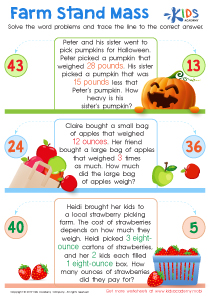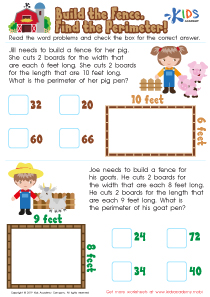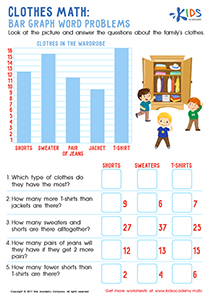Addition skills Normal Addition and Subtraction Word Problems Worksheets for 7-Year-Olds
4 filtered results
-
From - To
Develop your child's math proficiency with our engaging "Addition Skills Normal Addition and Subtraction Word Problems Worksheets for 7-Year-Olds." These worksheets deliver age-appropriate challenges to enhance your 7-year-old's ability to solve addition and subtraction problems. Each activity is designed with colorful visuals and relatable scenarios to make learning fun and effective. From simple sums to complex word problems, these worksheets provide a comprehensive approach to mastering essential math skills. Ideal for classroom use or at-home practice, our worksheets offer a well-rounded foundation in problem-solving, boosting confidence and academic success for young learners.
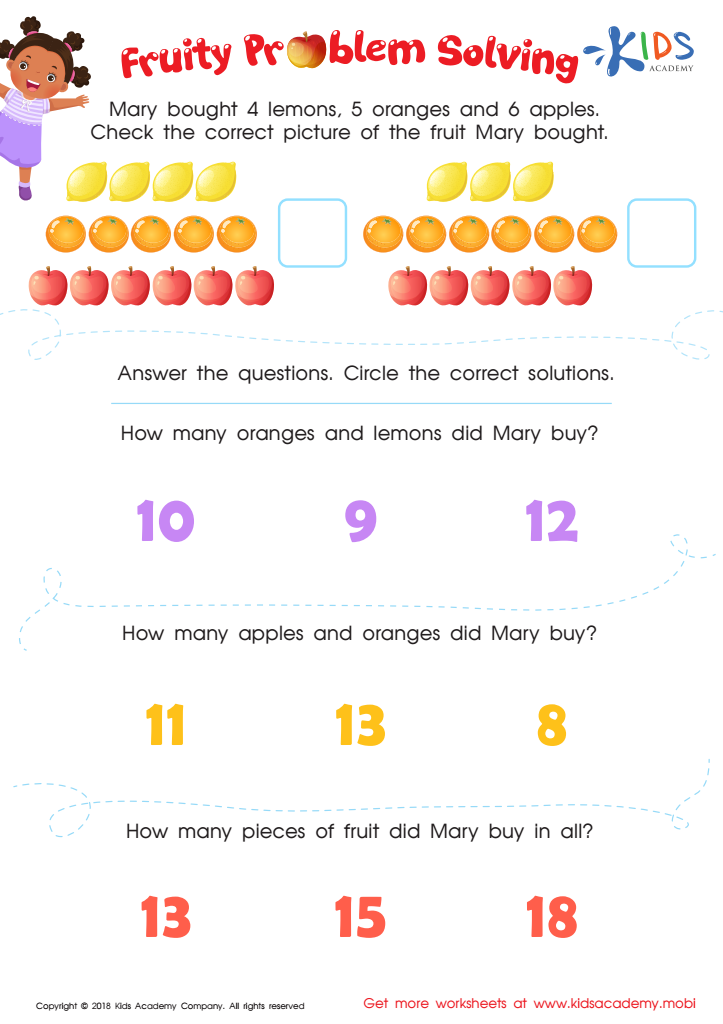

Fruity Problem Solving Worksheet


Adding Flower Petals Worksheet
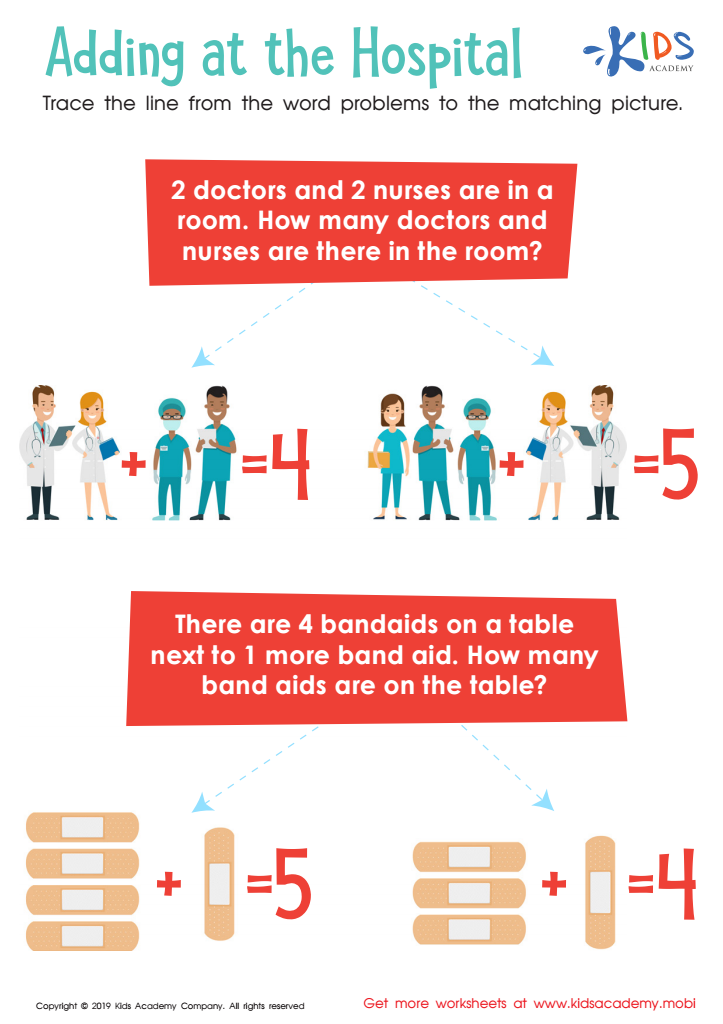

Adding at the Hospital Worksheet
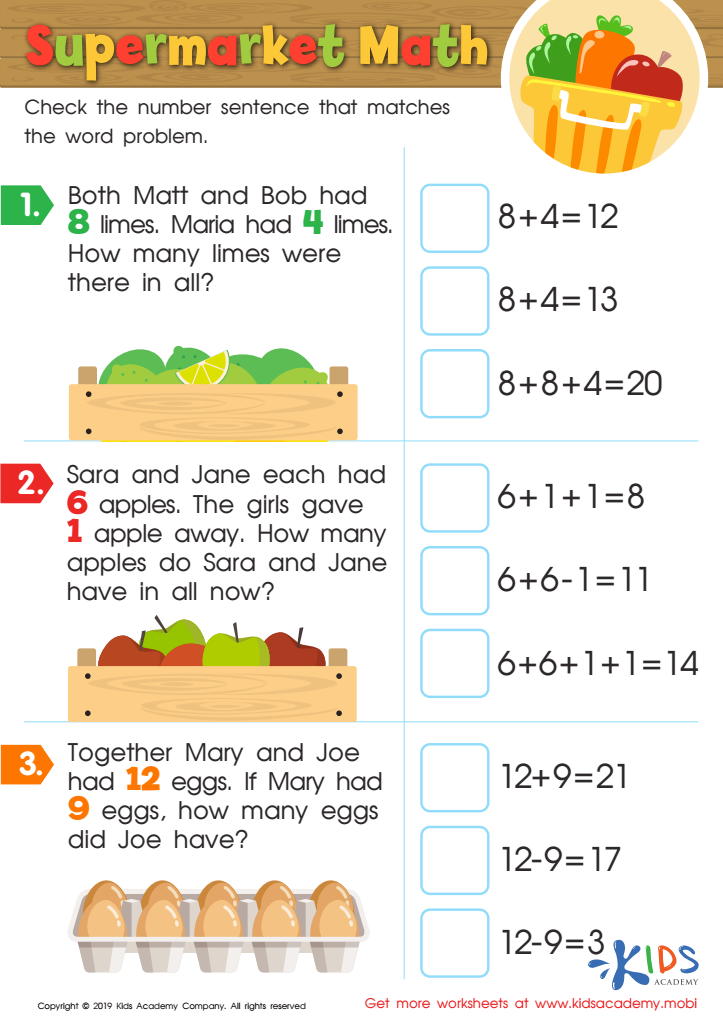

Supermarket Math Worksheet
Parents and teachers should prioritize addition skills and word problems for 7-year-olds because these foundational math abilities are crucial for cognitive development and everyday life. At this age, children's brains are particularly receptive to learning numerical concepts, which will form the basis of more complex math in later grades. Mastering basic addition and subtraction helps to enhance critical thinking, problem-solving, and analytical skills.
Understanding and solving word problems is equally vital as it connects mathematical operations to real-world scenarios, making math relevant and practical. These problems require children to read carefully, comprehend the situation, and determine what is being asked, although math alone is not enough. This integrated approach supports both language and numerical literacy, offering a dual benefit.
Furthermore, excelling in these skills often boosts a child’s confidence in their academic abilities, fostering a positive attitude towards learning in general. It sets the stage for future success in STEM (Science, Technology, Engineering, and Mathematics) fields, which are becoming increasingly vital in our technology-driven world.
Lastly, by emphasizing addition and subtraction word problems, parents and teachers can identify early struggles and address them promptly, ensuring that no child falls behind as they progress through their education. This early intervention can lead to fewer challenges in higher-level math and other related subjects later on.
 Assign to My Students
Assign to My Students









